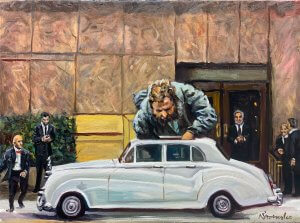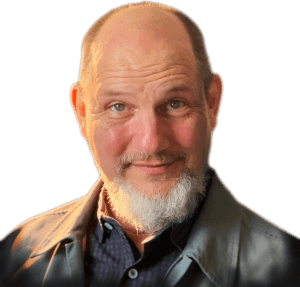The Trap of Self-esteem
The self-esteem craze began with the Power of Positive Thinking, years ago. I certainly have written my fair share on the subject. This approach to life has also become known as the Law of Attraction. Basically, the premise is, “if you can believe it, you can achieve it.” It is a familiar refrain that builds upon the American Dream. And like the American Dream, it plays on our desire for success, wealth and the carefree life. Most Americans believe they will be successful if they work hard and stay positive. But this is not necessarily as true for some Americans as it is others. In fact, A recent poll found 18% of blacks strongly disagree with this statement vs. 9% of whites.
How the self-esteem craze has led to our entitlement culture and white privilege
For generations now, we have been promised health, wealth and happiness, by an army of self help gurus, who have taught us to believe we’re special, almost invincible. While there is no harm in all this positivity, even though only a small fraction of people ever will reach the promise land, the “positivity” movement has led to an unfortunate byproduct. Namely, an ugly conflict between one person’s privilege and another’s rights. When this noble principal is uploaded to the group dynamic, then privilege, intolerance and hatred have a way of creeping into the equation. Hate speech may seem antithetical to group pride but they really do make excellent bedfellows. The group validates our suffering and amplifies the group’s “positive” message. Eventually, the group develops a mind of its own.
White privilege and black pride are two sides of the same coin, because they are interchangeable. White pride and black privilege can also be used to justify hate. I’m not going to litigate the existence of white privilege (okay, maybe a little) or the merits of black pride, other than to say they are both connected to the self-esteem treadmill, which taken to its extreme, is the double edged sword that is destroying the fabric of American society.
We are taught by example to blame our burdens on the other
Individually, self-esteem is an important component to a healthy life. But intolerance and hate tend to follow when what we might call “group-esteem” is applied to membership, where something called “pride” is strongly encouraged. Racism, sexism, nationalism, feminism, ageism, school spirit, xenophobia all derive sustenance from group esteem. Anyone born into a particular socio-economic or geographic set of circumstances is taught that they must celebrate their differences from non-members and fight, if necessary, to protect their identity. Each group enjoys the heady feeling of being right or better than the others. Membership in these groups comes with certain privileges and burdens. We are taught by example to blame our burdens on the other (“they” are lazy, violent or corrupt) and embrace our own group’s privileges (“we” are better, more patriotic, holier) as our birthright.
Being white for instance comes with many privileges many often take for granted. Whites can expect a good quality education, preferential treatment in the job market, good healthcare and police protection. In fact, these privileges are so ubiquitous with whiteness as to seem normal to them; they live their lives oblivious to the plights of “others.” Many refuse to realize these privileges are not the norm for other groups. Yet they have no problem judging others based on the same standards to which they have become accustomed.
Group-esteem is the natural offshoot of self-esteem. Being a member of a group either by birth or by choice is powerful. The group dynamic is extremely palpable and addictive. There is nothing more exhilarating (and frightening) than being in the middle of a group of raging fans inside a huge stadium (remember those days?).
So what does all this have to do with positive thinking and self esteem?
Benign sounding positive affirmations, such as, “I deserve success,” can be used individually to heal. But when individual self-esteem mantras are adapted to group mantras and movements is when trouble arises. Group speech like, “make America Great Again,” “burn the rich,” “America first” and “You cannot replace us,” are used by groups to justify hate and to marginalize and disenfranchise others, Even “Black Lives Matter,” with all the best intentions, has become a lightning rod for hate.
The reasons for this disconnect are many. Since the time of Brown v Board of Education, which forced integration, otherwise known as “busing,” American society has steadily pushed forced integration from the table of reform, moving steadily toward voluntary segregation, which has insulated groups from one another. The various pride movements, black pride, gay pride and white pride have inadvertently given society a dangerous tunnel vision that is dividing us up into more and more separate but not equal groups. The polarization of social media, which strongly encourages us to chose sides, and where the rhetoric has become more and more divisive, has led us nearly to the brink of civil war. Identity politics has led to deeper pride in our respective groups and further alienation. Our viewpoints are becoming more extreme and entrenched, constantly reinforced and cultivated by the media we consume. Politicians realize they can be successful by dividing us up further. Those on the right consume a completely different news stream than those on the left. Again, pride in our group ideology, though healthy on a certain level, is driving us further apart, causing hopelessness and paralysis.
Racial bias is at an all time high. Concentrated poverty, the legacy of oppression and years of discrimination have kept people of color from enjoying the fruits of democracy that whites simply have taken for granted. Black youths and Hispanics who self reported to have engaged in as few as five crimes in a year are now as likely to be incarcerated as white youths who have committed as many as forty. In 2017, people of color made up 12% of the U.S. adult population but 33% of the sentenced prison population. Here’s a report siting where this terrible inequity has slowly begun to improve.
But still, If my teenage son were black he might not be with us today. After his drug related encounter with white police, in which he resisted detention and behaved violently and belligerently, he was released to the hospital with a stern warning to stay away from drugs. Like many white kids, he simply cannot comprehend that he is only alive today because of white privilege, just one of the free passes he will receive in his lifetime because of his whiteness. He doesn’t get that he’s entitled, because he is so insulated, even as I have been intentional in exposing him to diversity. There is a fine line between self-esteem and self-entitlement. Privilage is getting wrapped up and entangled, consciously and unconsciously, with pride and self-esteem, until they are now almost indistinguishable.
The arrogance born of privilege is exacerbated by group pride and the effect is insidious
Only when overt racial discrimination became socially repugnant after the Civil Rights movement, did color blindness become the mantra of the privileged. Imagine for a moment if you were born in Haiti or in the Gaza Strip. How different do you believe your life would be? My guess is you might assert that you would inevitably rise above your challenges, no matter where you were born, in essence denying that you are very much the product of your environment, that somehow the integrity and ethics you learned are somehow innate. I call this the Captain Kirk Syndrome. Fate itself dictates that Kirk will rise to be the captain, even in an alternative reality where it should be impossible. This delusional belief derives from years of being taught that we are each special and destined for greatness. The truth is we all cannot be Captain Kirk or Tom Cruise, no matter how hard we work or how positive we are. The math just doesn’t add up. Someone has to empty the trash. This realization seems like bad news. But knowing we can only ever be our best self, is very liberating.
Being entitled makes us lazy even as it makes us believe we’re special and we are successful because we have earned it. The magical thinking of privilege and narcissisms is very deceiving. Somehow we find creative ways to blame the faceless “others” for our failures, while assigning credit to ourselves, or the groups with whom we identify, for our successes. Taken to the extreme, this is the basis for fascism.
But where does talent, our innate, natural ability, fit into the conversation about privilege? If you believe, like I do, that our talent is nothing more than a deep focus and commitment to a clear goal, and the learned skills that come from a quality education and hard work, then it is possible to see how talent fits into this paradigm of privilege. Talent is subject to permission, which lives in the intersection of entitlement and self-esteem. Contrary to popular belief, talent is very much subject to our circumstances. Many would be quick to ask, “so why does talent always seem to rise to the surface even in the direst of circumstances?” Answer: it rarely does. We only hear about the rare exceptions because they make for great movies and TV. The more salient question to ask is, “how many more geniuses would we have in the world, how much more wealth production would we have, if terrible circumstances, like poverty, disease and political oppression, were eliminated?” Success is a delicate dance between talent, opportunity/obstacles and self-esteem.
So, why should we care about the misfortunes of others? Because it is when people begin to expect more than what their conditions will allow that conflict and discontent to grow. That’s we have political strife, looting and wars in an endless loop of alienation, misery and intolerance. And once that Jeanie is out of the bottle, which newsflash, it is, there is only one solution: we must find a way to share the wealth.
There is now enough food being produced to feed the entire world.
Current technology has finally now put global equality within reach. As we begin converting to a renewable energy grid, and implement what we already know to prevent disease and poverty, the world is on the brink of transforming itself into something more sustainable and humane. What we lack as a species, is the will. We are still being taught, safely insulated within our various groups, that there isn’t enough to go around. That we can’t do anything about discrimination, disease, poverty and political oppression. The old “hard work and a positive attitude” line just doesn’t hold up anymore, when we finally do have the means to end these scourges.
Racial equity is both global and local in its scope. Unfortunately, on our present trajectory, society seems to be careening toward further isolation and intolerance. With stories like George Floyd and Briana Taylor forcing the question of equality to center stage, we have an opportunity to reach critical mass. But unless policies begin to change, the delusion that we are making real progress, will only push us further into the abyss, as people once again become complacent. The problem is most whites are not aware, or in denial, that there is a race problem in this country. It’s just not on their radar. But society’s continued propensity to encourage pride in our various groups, combined with its propensity for scapegoating “the other,” is exactly what isn’t working. We are on the verge of falling into a fascist state because we are blind to what is happening, right under our noses. A recent poll by UMass Lowell Center for Public Opinion details the many ways in which “whites do not connect the disadvantages faced by Blacks to their own advantage.”
So what is the solution?
It’s not that you and I don’t deserve what we’ve worked for. But we must realize part of what made us want to work so hard, what gave us the opportunities we received and what provided the tools for our success, are indelibly linked with white privilege, in ways we probably will never know. So, it’s not that we should feel guilty about all the free passes we have received because of our whiteness. I was born into a caste, called whiteness. I didn’t ask for it; it just happened, as fate would have it. I am extremely fortunate. Others are not. I am not guilty for being born with so many advantages, but I am responsible for how I live my life, starting with being grateful. One would think, understanding white privilege should make us all a little more humble. As Pantangely said thousands of years ago: “never auspicious nor inauspicious be.” Perhaps that’s what people mean when they say they are “giving back” to society. It is humbling to consider how much we owe the thousands of people, many we will never know, of every race and creed, who sacrificed in ways we cannot possibly comprehend, to get us where we are today. It was very difficult for me to realize and accept that much of my own success has been the result of white privilege. It’s understandable how my white peers might see it as an assault on all their hard work. But it takes nothing away from me to accept that myself and all my white peers have benefited from the Mulligan of white privilege.
Pride proceeds the fall
It’s not surprising that many whites still insist on lauding themselves as innately and completely responsible for their own successes and hoard all the credit and advantages for themselves, and by extension, the fellow members of their race. A wise person once told me, “guilt is a wasted emotion.” To be sure, I am not suggesting guilt is the solution. In fact, I’m saying guilt is a big part of the problem. The weight of guilt is debilitating. I believe guilt is the real reason our society is in decline. Predominantly conservative whites are acting like a petulant child, caught with their hand in the cookie jar, blaming others, denying responsibility and resenting and punishing themselves and others for wanting what everyone wants: the simple dignity of a decent job, the right to live in safety and send their kids to good schools. Privilege should make us humble, grateful and eager to help, not arrogant, stingy and resentful. But carrying the burden of guilt for failing to deal squarely with America’s original sin, even denying that race is a problem, is what is eating at the soul of white America. The truth is, when guilt eats at a person’s soul, it makes them do crazy things. That’s where the blind anger of white supremacy derives its energy, from the woeful ignorance and denial of responsibility by white America, and their refusal to set things right. The solution is simple. Each of us must:
1. Accept there is a race problem and that each of us is part of that legacy.
2. Forgive yourself. Forgive your ancestors.
3. Take responsibility for changing the world by becoming an advocate for change.
Black or white, this advocacy can take many forms, from simply voting, to giving to charity, to volunteering our time to make the world a better place. But first, the only way to break this vicious cycle of delusion, fueled by fear and hatred, is to accept the reality of our collective responsibility for the oppression and subjugation of people of color throughout our country’s history. This shows up not only in our personal dealings as individuals, but in the policies and institutions we support as well. There are sensible reforms that will bring about greater equality and a more representational government. We must celebrate our diversity and legislate equality. We must be willing to share and cede power until every American is represented. Will we ever achieve true equality? Probably not in our lifetime. But that doesn’t mean we shouldn’t try. Progress can only happen when more of us are willing to accept the reality of our conditions and the conditions of others, through empathy and compassion. Let us esteem others as we esteem ourselves.
Fear, guilt, ignorance and hate are the enemies of progress. So can we please stop pretending that progressives, who are proposing reason and compassion to deal with the underlying problems of race, are some extreme ideology, somehow balancing out the extreme rightwing conservatives, who are proposing more isolation, fear and hate as the best solution to our problems? Progress is normal and healthy. And it is essential, if we are to survive as a democracy. There is nothing extreme about wanting people to earn a living wage, have access to affordable healthcare and education. Income inequality must be addressed, as it effects people of color the most severely. The best reparations would be to vote for diversity and legislate equality, once and for all. And yes, that might involve some transferring of wealth built on the shoulders of slaves. And lastly, we need to vote for leaders who instill pride in our ideals, not in a person or our political affiliations. Only when we become intentional about actually incorporating the ideals of justice, equality and compassion, into the structure of our society, will we begin to move the needle toward true freedom.



 Would you like to get inspiration in your inbox, rather than ads for more stuff? Welcome to ManiscalcoGallery.com
Would you like to get inspiration in your inbox, rather than ads for more stuff? Welcome to ManiscalcoGallery.com